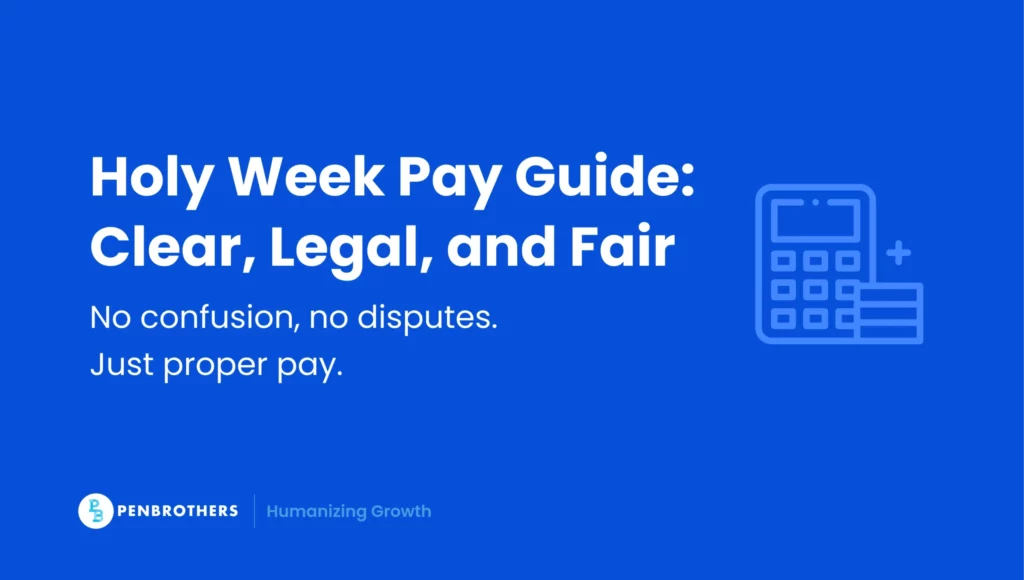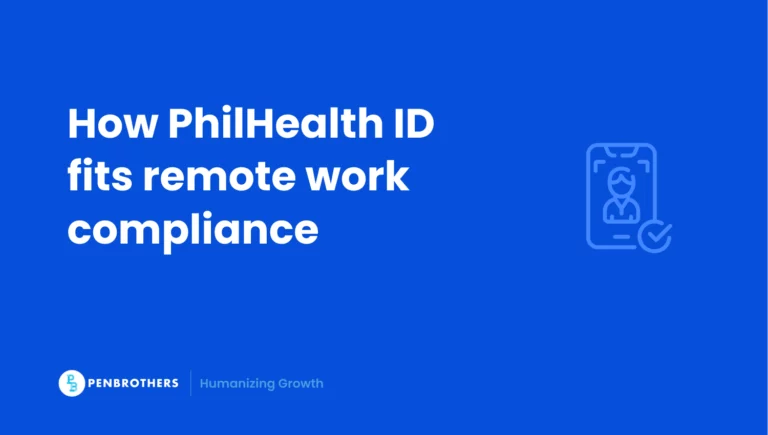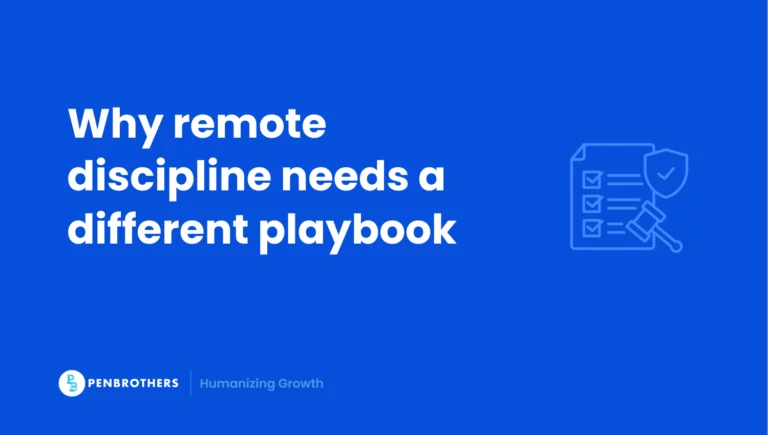Key Takeaways
- Holiday pay is a legal right, even if you work remotely.
- Understanding daily wage, overtime, and local holidays ensures fair compensation.
- Employers must have clear, compliant policies, and employees should know how their pay is calculated.
- Always check your work location and schedule to make sure you’re receiving the correct pay.
Introduction
Working from home comes with freedom, but it also brings questions. One of the most common: “Do I still get holiday pay if I’m not in the office?” The answer is yes. Holiday pay is a legal entitlement in the Philippines, and being remote doesn’t change that.
Whether you’re logging in from Manila, Cebu, or a small town in the provinces, your right to be fairly compensated on holidays remains the same. The difference is that as a remote worker, you might have to pay closer attention to how your location, schedule, and employer policies affect your pay.
In this guide, I’ll walk you through what holiday pay is, who qualifies, how it’s calculated, and what you can do if you feel something’s off. By the end, you’ll have a clear picture of how to make sure your holiday work and pay are handled correctly.
What Holiday Pay Really Means for Remote Workers
Holiday pay isn’t just a bonus. It’s a guarantee that you’re compensated fairly when work stops for national or local holidays. Many remote employees assume that “because I work from home, holidays don’t apply to me,” but that’s not true.
Here’s how it breaks down:
- Regular Holidays: These include New Year’s Day, Independence Day, and Christmas Day. If you don’t work on these days, you’re still entitled to 100% of your daily wage. If you do work, you get 200% of your daily wage.
- Special Non-Working Holidays: These are local or declared holidays like Chinese New Year or Eid al-Fitr. You don’t get paid if you don’t work, but if you do, you earn 130% of your daily wage.
For remote workers, location matters. If your city declares a local holiday, your employer may need to honor it even if their office is elsewhere. It’s one of those nuances that can trip up payroll if not handled carefully.
Who Qualifies for Holiday Pay When Working Remotely
You might think holiday pay only applies to full-time employees. Not exactly. Here’s how it works for remote workers:
- Full-Time Employees: Automatically entitled to holiday pay for regular and special holidays.
- Part-Time or Contractual Employees: Eligible if they’re required to work on the holiday; pay is prorated according to hours or days worked.
- Special Remote Scenarios:
- Working from a province with local holidays may affect your entitlements.
- Time-zone differences or staggered schedules require careful payroll tracking.
- Working from a province with local holidays may affect your entitlements.
The bottom line: your employment type, work schedule, and location determine how your holiday pay is computed, but remote work doesn’t take you out of the law’s protections.
How Holiday Pay is Calculated
Understanding the math is crucial so you know you’re being paid fairly. Let’s break it down in a way that makes sense for remote workers:
- Regular Holidays:
- Not working = 100% of your daily wage
- Working 8 hours = 200% of your daily wage
- Not working = 100% of your daily wage
- Special Non-Working Holidays:
- Working 8 hours = 130% of your daily wage
- Working 8 hours = 130% of your daily wage
- Overtime:
- On a regular holiday = 200% × 1.3 per extra hour
- On a special holiday = 130% × 1.3 per extra hour
- On a regular holiday = 200% × 1.3 per extra hour
Example: If you earn ₱800/day and work on Christmas Day, you would get ₱1,600. If you also worked 2 hours overtime, those hours would be calculated at 200% × 1.3 per hour.
Legal Backing: Why Employers Must Follow the Rules
The rules for holiday pay aren’t optional. Articles 93, 94, and 95 of the Labor Code, plus DOLE guidelines, apply equally to remote workers. That means:
- Employers must track your work hours, location, and applicable holidays.
- Payroll must calculate holiday pay accurately, including overtime and rest day overlaps.
- Transparent policies are essential so employees understand what they’re entitled to.
If your employer ignores these rules, you have grounds to raise the issue without fear of losing your rights.
Practical Tips for Remote Workers
- Check your telecommuting agreement: Make sure holiday pay entitlements are spelled out clearly.
- Know your location’s local holidays: Some provinces may declare extra holidays, and you could be entitled to pay.
- Track your hours carefully: Keep a log of hours worked on holidays, including overtime.
- Ask questions: Don’t assume payroll will get it right automatically; clarify with HR if something looks off.
Final Thoughts
Remote work doesn’t mean you lose protections. Holiday pay is your right, and knowing how it works, how it’s calculated, and what to look out for can save you from underpayment or confusion. Keep your records, understand your entitlements, and make sure your employer follows the law.






